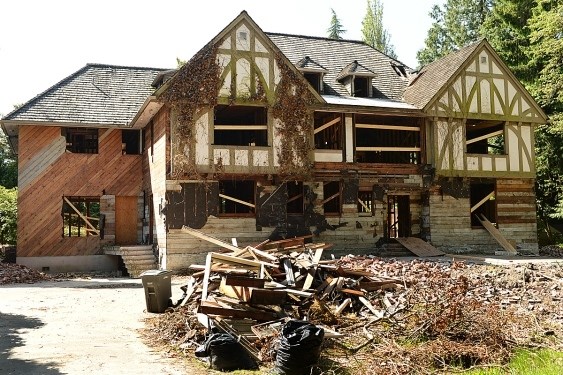I first came to Vancouver in the spring of 1970, on a short trip with my family. As a kid, the region seemed magical to me compared to flat, cold, Southern Ontario.
Mountains! Beaches! Huge, all-season Christmas trees! A public aquarium with performing whales!
The entire family moved to B.C. permanently in 1973. I recall ambling through Jericho Park when Vancouver hosted Habitat 1 in 1976 — a conference championing the progressive notion that government had a responsibility to ensure its citizens proper shelter.
“The Vancouver Declaration” from Habitat 1 stated that “unacceptable human settlements circumstances are likely to be aggravated by inequitable economic growth and uncontrolled urbanization, unless positive and concrete action is taken at national and international levels.”
A decade later the city hosted Expo 86, a world exposition on transportation and communication presided over by a used car salesman and a robot named Ernie. By then I was old enough to recognize the transportation theme was a thin conceit to advertise Vancouver to the international investment community.
In 1988, the province sold the Expo lands to Hong Kong billionaire Li Ka-shing for the fire sale price of $145 million. Soon developers were erecting cheap, Santa Fe-style architecture on the city’s West Side, laying the ground work for the infamous leaky condo crisis another decade down the road.
In 1989, long before the arrival of wealthy Chinese investors, I noticed the proliferation of Jaguars, Mercedes and other high-end cars in the city streets. Coincidentally or not, this was the same year I noticed homeless people appearing in the streets of my Kits neighbourhood.
The deinstitutionalization of the mentally ill, with only fragmented support services to help them, had begun in earnest. Ironically, Vancouver’s status as an international hotspot was coupled with its distinction of having the poorest postal code in Canada: a sacrifice zone occupied by disturbed people self-medicating in the streets.
The effects of the Thatcher-Reagan-Mulroney group grope were being felt across the Anglo-American world; globalization was ascendent and aloof Vancouver took on a mercenary edge as it adopted the free market mantra.
With B.C.’s resource-based economy on the slide, the stage was being set for increased commodification of shelter.
As urban policy expert Elizabeth Murphy reminded me recently, the Sino-Cascadia pathway across the Pacific was well-prepared by local policy decisions.
It started with the City of Vancouver’s drive “to rezone massive amounts of the city, removing checks and balances like Third Party Appeals to the Board of Variance, changing from the Liveable Region Strategic Plan to the Regional Growth Strategy, unhinging transit from transportation to the delivery system of development, dismantling of heritage programs while encouraging the destruction of the older more affordable housing stock,” Murphy writes.
“Blame foreign investment all we want, but our governments invited them, accommodated them and sold us out to an invasion of international wealth we can never compete with,” she adds.
Asian investors with yuan to burn — ill-gained or otherwise — are acting as rational economic players by responding to a red carpet rolled out by a succession of blinkered civic, provincial and federal officials. The blame lies squarely on this side of the Pacific. (See Kerry Gold’s excellent article in The Walrus for an overview of Vancouver’s surreal estate story.)
The past six years has seen residential property prices go asymptotic, with perfectly liveable homes reduced to landfill for the sake of ticky-tacky mansions. It’s like butterflies pupating into caterpillars in the city’s gutted neighbourhoods.
Also over the last six years, St. Paul’s hospital has recorded close to a 90 per cent increase in mental health emergency visits. “At least 46 homeless people died in British Columbia in 2014 — a 70 per cent increase from the year before,” according to report released by the street newspaper Megaphone.
Meanwhile, increasing numbers of young people in Metro Vancouver are choosing the temporary “lifestyle alternative” of living in vans, rather than rent or own property. When I was young, we called that “homeless.”
Ah, Vancouver. You were always an austere beauty, with the looks of a Hollywood starlet, the warmth of a customs agent, and the depth of a gnat. Only now do I realize, four decades after arriving here, that I once loved you. And with lingering feelings of connection, I despair your extreme makeover is far from complete.
geoffolson.com



